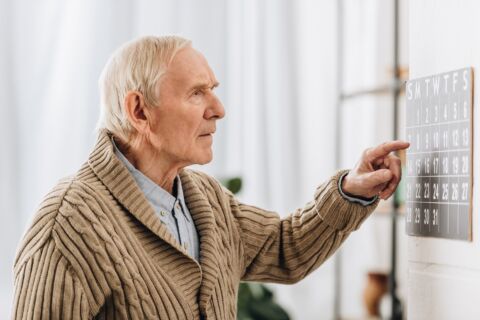As Australia’s population ages, more families are asking the same urgent question: how do we protect our parents’ wellbeing as they grow older?
Here at Acquaint, we believe supporting mental health for older people isn’t an optional extra. It’s foundational. Because, really. No one thrives on lukewarm small talk and beige routines.
So let’s discuss how we approach aged care differently – and why this makes all the difference for seniors' mental health.
TL;DR – Aged care mental health support, the Acquaint way
- Mental health in aged care is just as important as physical care, especially for older people living alone.
- Residential facilities often fall short on emotional and psychological support.
- Acquaint’s at home care supports seniors’ mental health through personalised companionship, cognitive stimulation, routine and family connection.
- Our approach preserves identity, independence and emotional resilience – all from the comfort of home.
Why mental health support matters in later life
Contrary to popular belief, later life doesn’t automatically come with inner peace and emotional resilience.
In fact, it can be one of the most mentally vulnerable stages of all. Grief piles up, social circles shrink, health becomes more complicated and the sense of purpose that once anchored everything can quietly slip away.
But chin up, darling. Just because it can, doesn’t mean it has to.
That’s where proper mental health support comes in – not as a crisis response, but as a daily, deliberate practice.
It means having someone who listens, yes. But also someone who starts conversation, encourages movement and keeps that spark of mischief alive.
How Acquaint supports mental health for older people at home
We don’t just tend to the body. We care for the whole person – including their moods, thoughts, habits and opinions (even the unpopular ones).
Here’s how we put mental health at the centre of everything we do.
1. Genuine companionship – not just a ‘check-in’
Our carers are competent and compatible. We match them with your parent based on personality, interests and, frankly, whether they’ll actually get along.
Because if someone’s regularly showing up in your home, they should feel like a welcome presence, not another appointment to endure (we all know the type).
That means real companionship. We’re talking inside jokes, shared opinions and synchronised eye rolls.
Is this kind of personal attention too much to ask for? No, it’s not. As far as we’re concerned, it’s the bare minimum.
2. Engagement that preserves identity
We don’t believe in passive aging. Here at Acquaint, we never park someone in front of the TV with a crossword and call that ‘engaged’. We shudder at the thought.
Our engagement plans are customised to each individual’s interests, energy levels and cognitive needs.
Activities may include:
- Memory-based storytelling (with a good cuppa in hand)
- Artistic projects and scrapbooking (chaos is encouraged)
- Gardening, baking or the occasional furniture rearrangement (good for the soul)
- Photo album curating (we will, of course, need to know the gossip behind every snap)
The aim is to keep elderly minds social and sharp – not merely entertained.
3. Structured routine, gentle rhythm
Yes, yes – we’ve all heard that routine is good for the aging brain. And it is. Studies agree. But let’s not confuse ‘routine’ with ‘monotony’, shall we?
We design daily and weekly rhythms that support mental clarity without sending anyone into a boredom spiral. There’s structure, naturally, but with a bit of charm and the occasional curveball to keep things interesting.
We also weave in gentle mental fitness techniques throughout the week. Not loudly or awkwardly (obviously, do remember who you’re dealing with), but with the kind of discretion and respect one would hope for at this stage of life.
Families need peace of mind, too
Mental wellbeing is a family affair. And we know the real fear: ‘Is Mum lonely? Is Dad fading?’ With Acquaint, you’ll never be in the dark.
- Regular communication: Our team can provide updates on your loved ones’ mood, engagement and overall wellbeing.
- Proactive emotional support: If we notice signs of low mood, withdrawal or confusion, we act early.
- Integrated Allied Health: When appropriate, we coordinate psychological support from experienced professionals who specialise in aged care mental health.
High expectations are our specialty
It took me a while to find the right home healthcare support. But after finding Acquaint, I haven’t been disappointed. Every carer we’ve had has been kind, supportive and genuinely good company. They’ve encouraged me to get out and about, taken me for walks and drives and even sat and chatted with me during hospital stays. It’s made a real difference.
Looking for aged care that prioritises mental health? At Acquaint, we keep your loved one engaged, seen and valued in the comfort of their own home. Get in touch to find out how.

